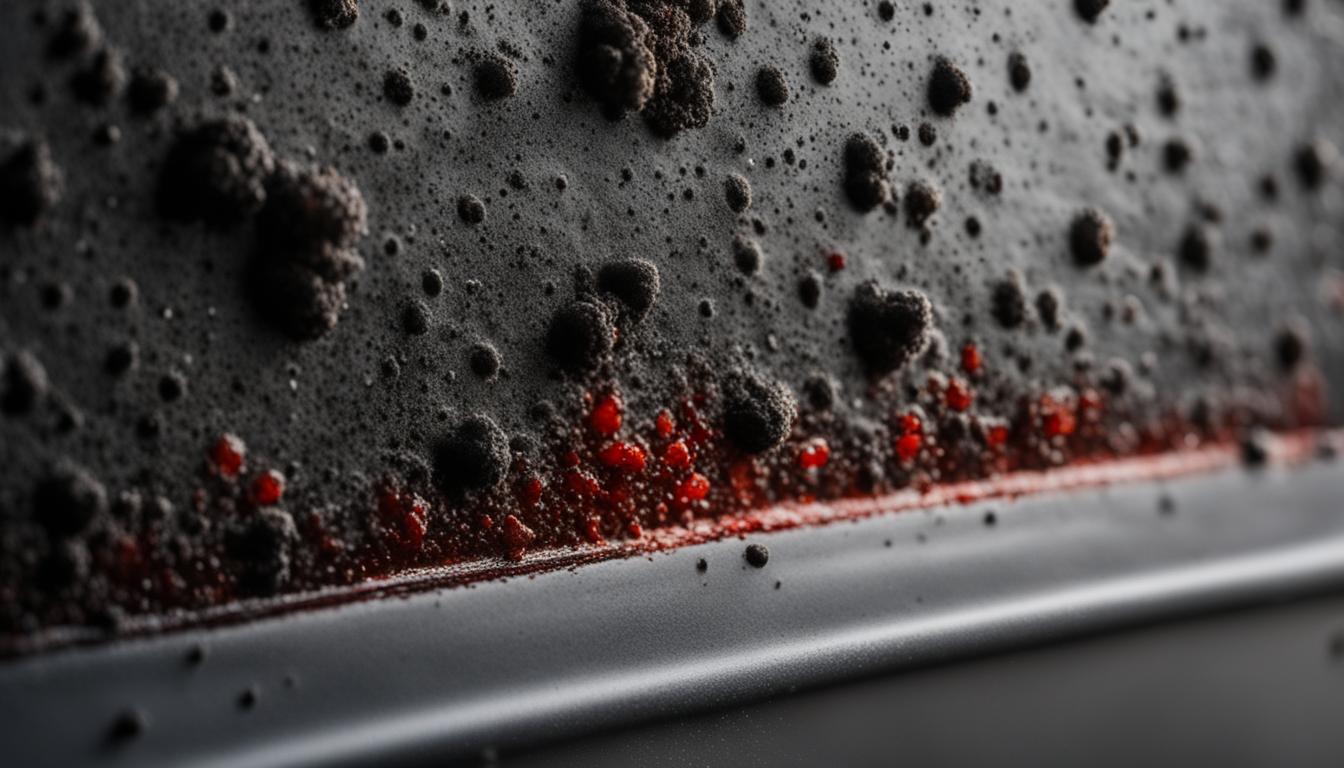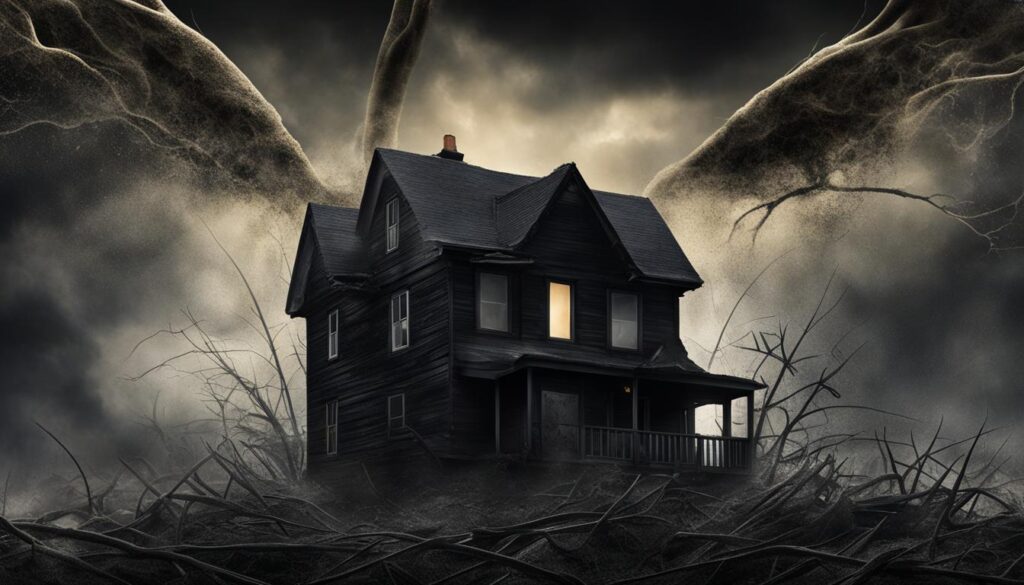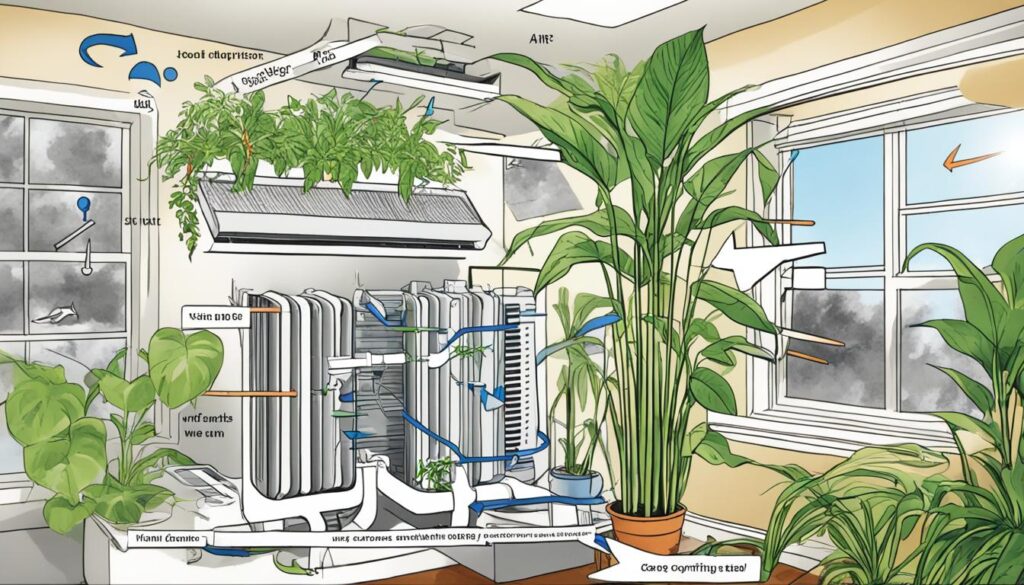
Is Black Mold Truly Safe to Ignore? The Risks Revealed
Black mold is a type of fungus that can grow in damp and humid environments, such as basements, bathrooms, or areas affected by water leaks. While it may seem harmless, ignoring black mold can have serious consequences for your health and well-being. In this section, we will explore the potential risks associated with black mold and shed light on why it should not be overlooked.
Exposure to black mold can lead to a variety of health risks. The spores released by black mold can cause allergic reactions, respiratory issues, and even chronic illnesses. Individuals who already have respiratory conditions or weakened immune systems are particularly vulnerable to the dangers of black mold exposure. Therefore, it is crucial to understand the potential health risks and take appropriate measures to mitigate them.
Furthermore, black mold can pose dangers beyond the immediate health effects. If left unchecked, it can spread and cause structural damage to your property. This can lead to costly repairs and decreased property value. Additionally, black mold growth is often an indicator of underlying moisture or water damage issues, which must be addressed to prevent further mold infestations.
Key Takeaways:
- Ignoring black mold can have severe consequences for your health and property.
- Exposure to black mold can lead to allergic reactions, respiratory problems, and chronic illnesses.
- Individuals with respiratory conditions or weakened immune systems are at higher risk.
- Black mold can cause structural damage to your property if left untreated.
- It is essential to address underlying moisture or water damage issues to prevent future mold infestations.
Understanding Black Mold: Health Risks and Dangers
Black mold poses significant health risks and dangers to individuals. Exposure to black mold can have various negative effects on both short-term and long-term health. It is crucial to understand the potential symptoms and long-lasting consequences associated with black mold exposure.
Potential Symptoms of Black Mold Exposure
Exposure to black mold can lead to a range of symptoms, which can vary depending on the individual and the extent of exposure. Common symptoms include:
- Respiratory Issues: Black mold spores can cause respiratory problems such as coughing, wheezing, and difficulty breathing.
- Allergic Reactions: Some individuals may experience allergic reactions such as sneezing, runny nose, itchy eyes, and skin rashes.
- Headaches and Fatigue: Prolonged exposure to black mold can contribute to frequent headaches and persistent fatigue.
- Recurring Infections: Black mold exposure can weaken the immune system, making individuals more susceptible to recurring infections.
These symptoms should not be ignored and may indicate the presence of black mold in the environment.
Long-Term Effects of Black Mold Exposure
Continued exposure to black mold can have severe long-term effects on individuals’ health. It is essential to address black mold infestations promptly to prevent the following long-term consequences:
- Respiratory Disorders: Prolonged black mold exposure may lead to the development of respiratory disorders such as asthma, bronchitis, and other chronic lung conditions.
- Neurological Issues: Some studies suggest a potential link between black mold exposure and neurological disorders, including memory problems, difficulty concentrating, and mood swings.
- Organ Damage: Black mold exposure has been associated with liver, kidney, and central nervous system damage, affecting overall organ function.
- Compromised Immune System: The continuous presence of black mold can weaken the immune system, leading to a higher risk of infections and illnesses.
It is crucial to understand that these long-term effects can occur over time and may not be immediately apparent. Therefore, taking preventive measures and addressing any black mold issues is essential for protecting one’s health.
Quote:
“Exposure to black mold can have detrimental effects on both physical and mental health. It is vital to take black mold seriously and ensure its proper removal to safeguard individuals from potential long-term consequences.” – Dr. Rachel Johnson, Environmental Health Specialist
By recognizing the specific health risks and dangers associated with black mold exposure, individuals can prioritize timely interventions and mold removal to protect themselves and their loved ones from the potential consequences.

The Importance of Mold Inspection and Removal
Mold inspection and removal are critical steps in dealing with black mold effectively. It is essential to understand the significance of proper testing and detection methods to identify and address the problem. By taking proactive measures, you can ensure a healthy and mold-free environment for you and your loved ones.
Identifying Black Mold
Identifying black mold can be challenging as it often grows in concealed areas such as behind walls, under carpets, or in damp basements. However, there are some signs to look out for:
- Visible black or greenish-black patches: Black mold often appears as dark-colored patches on walls, ceilings, or other surfaces.
- Musty odor: A strong musty smell is a common indication of mold growth.
- Allergic reactions: If you or your family members experience persistent coughing, sneezing, or respiratory issues, it could be a result of black mold exposure.
If you suspect the presence of black mold in your home or workplace, it is crucial to conduct a thorough mold inspection.
The Importance of Mold Inspection
A professional mold inspection is necessary to accurately assess the extent of the mold infestation and identify the type of mold present, including black mold. During a mold inspection, an experienced inspector will:
- Conduct a visual examination of the premises, looking for signs of mold growth.
- Collect samples for laboratory analysis to determine the type and concentration of mold spores present.
- Assess the moisture levels and potential sources of moisture that contribute to mold growth.
- Identify areas of water damage or leaks that may have caused the mold infestation.
Based on the findings from the mold inspection, appropriate measures can be taken to address the mold problem effectively.
The Process of Mold Removal
Mold removal should be conducted by trained professionals who have the necessary expertise and equipment. The mold remediation process typically involves the following steps:
- Containment: The affected area is isolated to prevent the spread of mold spores to other parts of the building.
- Removal: Contaminated materials, such as drywall or carpeting, are carefully removed and disposed of.
- Cleaning: All surfaces are thoroughly cleaned and disinfected to remove any remaining mold spores.
- Drying and Dehumidification: The area is dried and dehumidified to prevent future mold growth.
- Restoration: Any damaged materials or structures are repaired or replaced to restore the affected area to its original condition.
Remember, mold removal is not a DIY task. It is essential to seek professional assistance to ensure thorough and safe mold remediation.
Preventing Black Mold: Tips and Strategies
Black mold prevention is crucial in maintaining a healthy and mold-free environment in your home or workplace. By taking proactive measures, you can reduce the chances of black mold infestation and protect your health. Here are some practical tips and strategies to help you prevent the growth and spread of black mold:
- Keep moisture levels in check: Black mold thrives in damp environments, so it’s essential to address any moisture issues promptly. Regularly inspect your property for leaks, plumbing problems, and areas of excess humidity. Fix any issues and use dehumidifiers or ventilation systems to keep moisture levels under control.
- Properly ventilate: Ensure good airflow in your home by using exhaust fans in bathrooms and kitchens. Open windows regularly to allow fresh air to circulate, especially in areas prone to moisture buildup.
- Use mold-resistant products: When renovating or remodeling, opt for mold-resistant materials such as drywall, paint, and insulation. These products are designed to inhibit mold growth and can be effective in preventing black mold.
- Maintain cleanliness: Regularly clean and dry any areas that are at risk of mold growth, such as bathrooms, basements, and crawl spaces. Use mold-killing cleaners or a mixture of white vinegar and water to clean surfaces and remove any visible mold.
- Ensure proper drainage: Make sure your gutters and downspouts are clear of debris and functioning correctly. Proper drainage helps prevent water from accumulating near your foundation and creating an environment favorable for mold growth.
Remember, prevention is the key to avoiding black mold problems. By implementing these tips and strategies, you can significantly reduce the risk of black mold infestation and maintain a healthy living or working space.
“Prevention is the key to avoiding black mold problems.”

Safeguarding Your Health and Property
Implementing black mold prevention measures not only protects your health but also safeguards your property from potential damage. Moisture control, proper ventilation, and regular cleaning are vital in creating an environment inhospitable to black mold growth.
By taking these preventive steps, you can rest assured that you are actively minimizing the risk of black mold infestation and its associated health hazards.
| Tips and Strategies | Description |
|---|---|
| Keep moisture levels in check | Regularly inspect for leaks and use dehumidifiers to control moisture. |
| Properly ventilate | Use exhaust fans, open windows, and ensure good airflow in your home or workplace. |
| Use mold-resistant products | Opt for materials that inhibit mold growth during renovations or remodels. |
| Maintain cleanliness | Regularly clean and dry areas prone to mold growth using mold-killing cleaners. |
| Ensure proper drainage | Clear gutters and downspouts to prevent water accumulation near your foundation. |
The Role of Professional Black Mold Removal Services
When dealing with black mold infestations, it is crucial to understand the importance of seeking professional assistance for effective removal. Black mold poses significant health risks and can be especially dangerous if not addressed promptly and appropriately. DIY methods may seem appealing, but they often lack the expertise and equipment necessary to handle the situation adequately.
Why is Black Mold Dangerous?
Black mold, scientifically known as Stachybotrys chartarum, releases spores that can be harmful when inhaled or come into contact with the skin. These spores contain mycotoxins, which can cause a variety of health problems, especially in individuals with pre-existing respiratory conditions, weakened immune systems, or allergies. Some of the dangers associated with black mold exposure include:
- Respiratory Issues: Breathing in black mold spores can lead to respiratory symptoms such as coughing, wheezing, sneezing, throat irritation, and difficulty breathing. Prolonged exposure may even contribute to the development of respiratory infections or exacerbate existing conditions like asthma.
- Allergic Reactions: Black mold spores can trigger allergic reactions, causing symptoms such as skin rashes, itching, watery eyes, nasal congestion, and sinus problems. Individuals with mold allergies are particularly sensitive and may experience severe allergic responses.
- Toxic Effects: Mycotoxins released by black mold can have toxic effects on the body, leading to neurological issues, fatigue, headaches, dizziness, and even memory loss. These toxins can also affect other organs, including the liver and kidneys.
- Weakened Immune System: Prolonged exposure to black mold can weaken the immune system, making individuals more susceptible to infections and other illnesses.
Exposure to black mold can have serious consequences on both the short-term and long-term health of individuals. It is crucial to address the issue promptly and effectively to minimize these risks.
The Benefits of Hiring Professional Mold Remediation Experts
While DIY methods may initially appear cost-effective, they often fall short when it comes to complete black mold removal. Professional black mold removal services offer several key benefits:
- Expertise and Experience: Mold remediation experts have the knowledge and experience to effectively identify the extent of the mold infestation, locate hidden mold, and develop a comprehensive removal plan. They are equipped to handle the process safely and efficiently, minimizing the risks associated with black mold exposure.
- Specialized Equipment: Professional mold remediation companies utilize advanced equipment and technologies to detect, contain, and remove black mold effectively. Their tools can identify mold in hard-to-reach areas and ensure thorough removal, reducing the likelihood of recurrence.
- Prevention and Restoration: In addition to removal, professional services also focus on preventing future mold growth and restoring the affected area to its original condition. This comprehensive approach ensures a long-term solution and peace of mind.
By engaging the services of professional black mold removal experts, individuals can trust that their homes or workplaces will be treated comprehensively, minimizing the health risks and preventing further damage.
| Comparison of DIY Methods vs. Professional Black Mold Removal Services | DIY Methods | Professional Services |
|---|---|---|
| Expertise | Limited knowledge and experience | Extensive expertise and experience |
| Equipment | Basic tools and household cleaners | Specialized equipment for detection and removal |
| Safety | Higher risk of exposure to mold and toxins | Adherence to safety protocols and precautions |
| Thoroughness | Risk of incomplete removal and recurrence | Comprehensive removal and prevention strategies |
Conclusion
After examining the potential health risks and dangers associated with black mold exposure, it is evident that ignoring the problem is not a safe option. Black mold poses significant risks to individuals’ health and well-being.
It is crucial to prioritize proper testing and inspection to identify black mold infestations accurately. Through proactive measures, such as regular mold inspections, individuals can detect the presence of black mold early on and take the necessary steps to address the issue promptly.
However, it is essential to recognize that tackling black mold on your own may not be sufficient. Professional black mold removal services bring expertise and experience in effectively eliminating black mold and preventing its recurrence. Engaging the services of mold remediation experts ensures thorough removal and reduces the health risks associated with black mold exposure.
To create a safe and mold-free environment, individuals must take proactive measures, such as maintaining proper indoor ventilation, addressing moisture issues promptly, and keeping living spaces clean and dry. By being proactive and seeking professional help when needed, individuals can minimize the health risks and dangers associated with black mold exposure.




